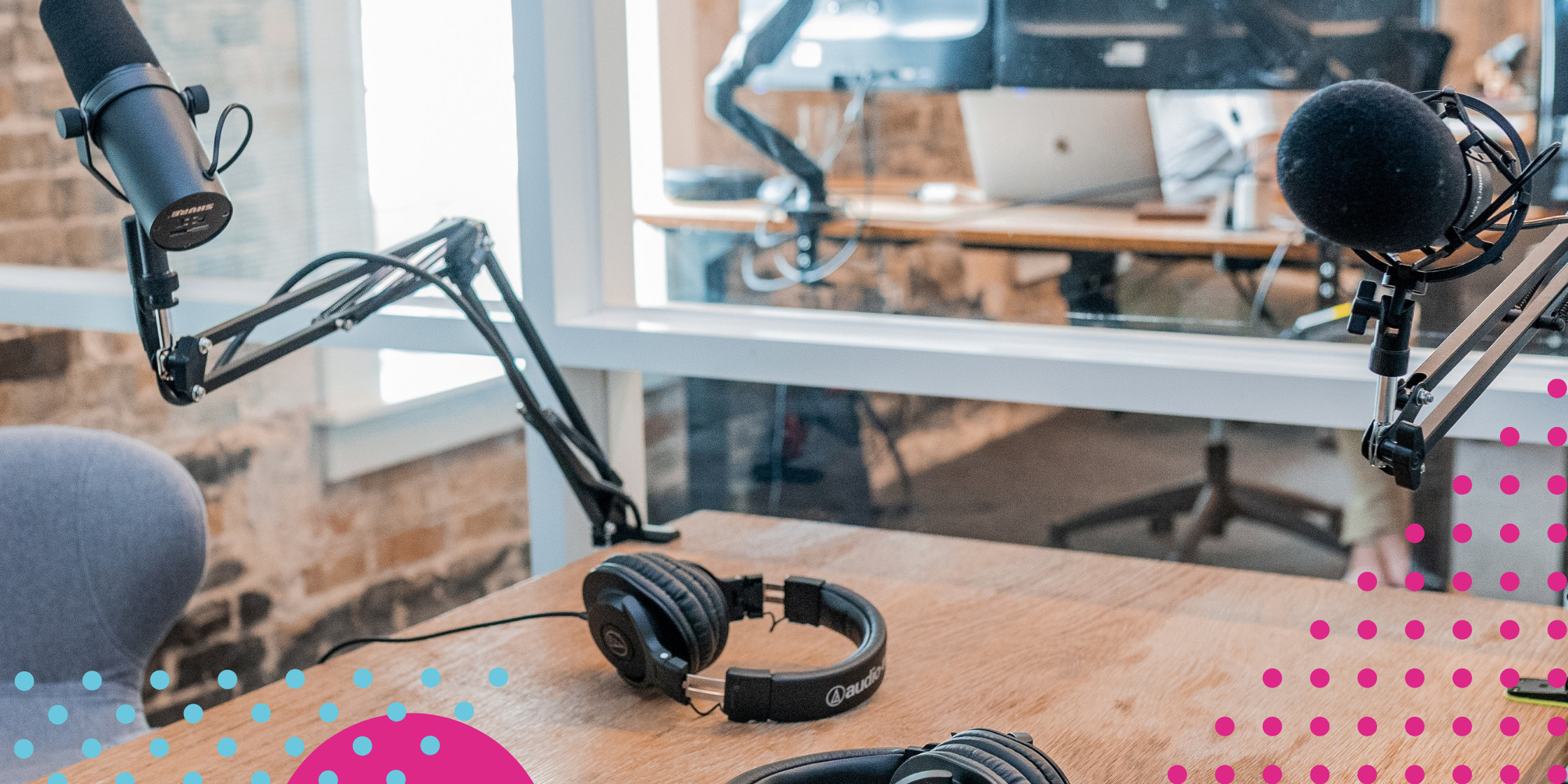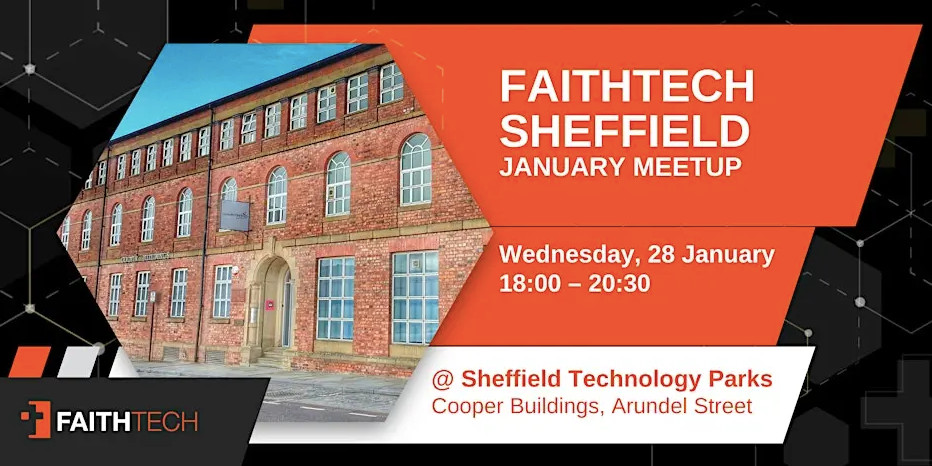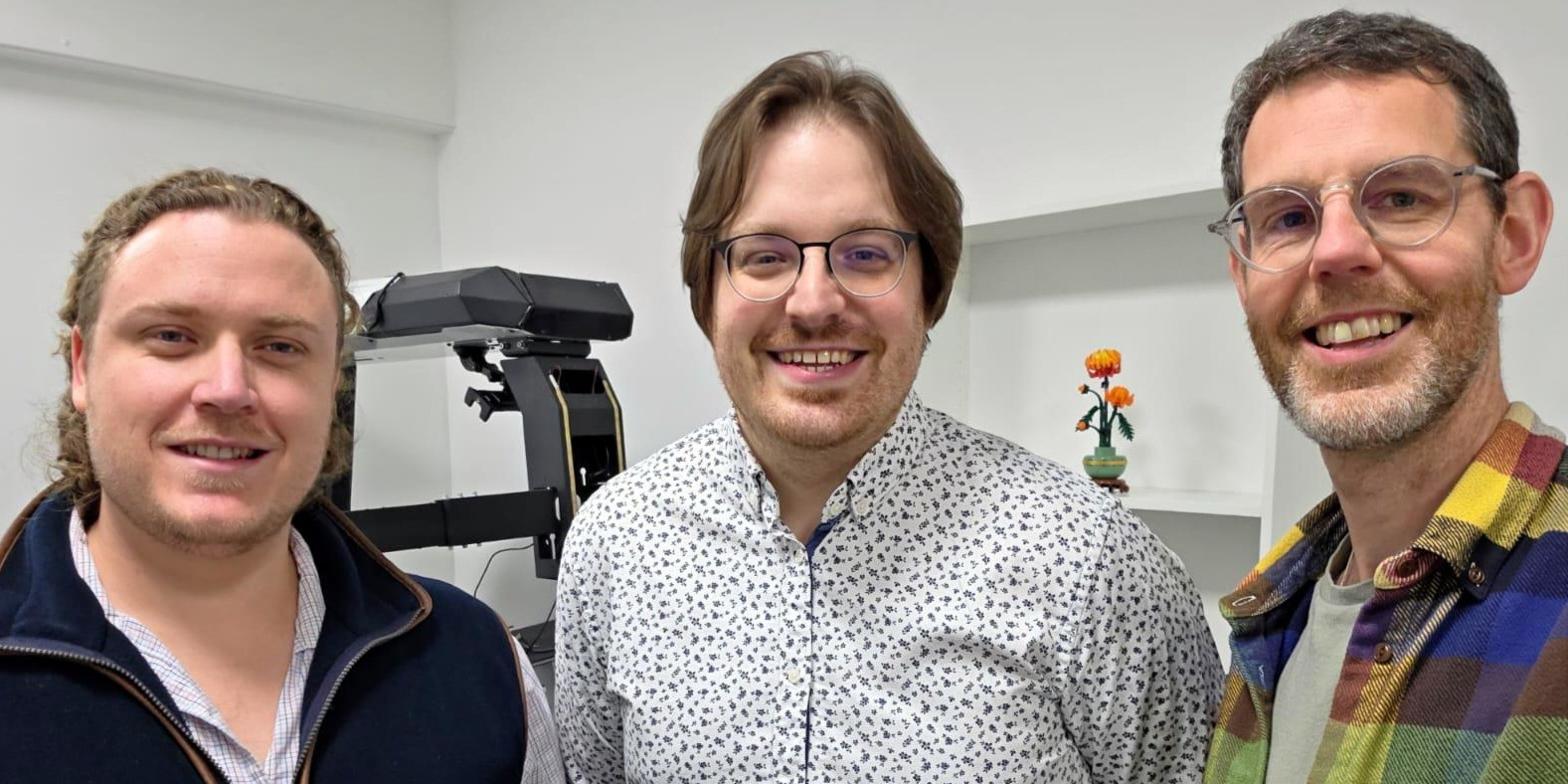Meet The Founder: Mark Asquith of Captivate
Mark Asquith is the founder of Captivate which is a company created by podcasters, for podcasters, with a dashboard that makes running and promoting podcasts a complete breeze.
Tell me a little bit about yourself and about Captivate. What do you do and how did you get started?
I’m the founder of Captivate and I’ve been working in tech and podcasting for a long time now, before it was cool, probably about 10 years. I started over in Barnsley at a digital agency that was successful in building tech and products for clients, and I first got into podcasting just from a production standpoint, then very quickly got into building solutions for it.
We started with a tech startup that got some US patented tech, then we got Captivate. We launched into beta in August 2019, and publicly Jan 2020. So, I got into podcasting because no one else was doing it.
So what got you into podcasting? Because it only became more popular in 2015/2016.
That's when everyone started hearing about it, because Serial came out, the big criminal podcast. I got into it just because I’m big into pop culture and wanted to listen to topics that I enjoy. So, I used to listen to Kevin Smith's podcast because I found it interesting.
Then, back in early 2013, I created a pop culture podcast with a friend of mine who now works for Captivate. I realised was that people were listening and asking me questions! - “How did you do this?”, “Why do you do that?” So I set up an interview podcast to help people understand.
So, when people kept asking me questions and asking for advice, like “what would you do in this circumstance?”, “How do you run a business?” etc, I thought why not start another interview podcast where I interview people who can answer the questions I’m being asked by listeners?
I just started interviewing people who had all sorts of experience, they’ve done things differently in business than what I’ve done, so I started thinking about this being a great opportunity, and that's why we built our first business in podcasting. Once those questions came flowing in, I thought… Well, I don't know all the answers, so I'll ask people that might know and I'll record it!
What were your businesses in podcasting?
We've had a few. The first one is podcast websites, which is a managed via a WordPress platform. For podcasters, which we still run, we’ve got the one that US patented which is productivity related and interaction tech-based, and we’ve got Captivate, which is hosting, analytics, distribution and monetisation.
Before Covid-19, we had a recording studio in Sheffield Tech Park, which was great, and we used to do quite a bit of consulting and advising under that business, We also used to do design services for podcasters but we wrapped those up as we were busy with Captivate. We've also had a few education related businesses, which we've then folded into Captivate. In short, we started to focus much more on just the tech service model, which we enjoy.
So Captivate seems like its kind of grown and grown, can you tell me a little bit more about that journey?
We said we were launching it, and then we did… and it got bought… and that was it!
What was funny about it, is that it grew really quickly, so it's a multi-million pound business two years after launching.
We launched in August 2019, and we set some targets for December that year of hitting a certain amount of MRR, and we beat that by 20%.
We don't have a free product plan, where a lot of pod casters now like freemium, we chose not to do that as we never wanted to do that from the start. But by the revenue, it was the fastest growing podcast hosting platform that there's probably ever been in the amount of time that we had it.
We still run it and it's still growing at that rate, but the first couple of years in particular, we didn't spend $1 on marketing, and I think a lot of it was because we had been around so long. I was at these podcast conferences before most people in the UK and we've always done good work, we'd always been there, we'd always been reliable, we'd always helped people, and we've always been honest, truthful and straightforward.
When we launched Captivate, people took the values from all the other things that we delivered on previously. So, when we said we're launching Captivate, we had a few things that helped it to grow so rapidly, whilst I'm saying we didn’t spend a penny on marketing, we didn't spend a penny on marketing, but we did produce a lot of content. We probably recorded around 1500 podcast episodes.
A lot of people are selling how to start a podcast courses, and a lot of them are very good, but they're charging hundreds of dollars for it, so we had just created one that's the most comprehensive it can be. We've got testimonies to say this is the best way to start a podcast and got us out there, and it's all free, we don't charge or even ask for an email address.
Whilst it's not a “we just turned it on, and it worked”, it was more of a “we'd put the time in”. We used to spend so much time pre-Covid in the US that, I now still get checked by the Border Control every single time I go into the US because they thought I was up to no good because I was there SO often!
I believe the reason for the startup success, is that people already knew us, we'd go to the massive conferences and speak at every podcasting event that there was.
Do you think that's what a lot of the success of Captivate is? Putting in that work? Or, is it having a strong personal brand?
I think those two go hand in hand. I'm the same with everyone, it doesn't matter whether you’re high up at Apple, or a user of Captivate. A lot of the time, you get people that have big egos and expect to be treated differently because they're a CEO. I’m not like that, I give everyone the same approach, attitude, fairness, respect and time. So, I think that was important, that personal brand element.
A lot of people, because they have to sell things based on hyperbole, they’ve got to say they can get you results in order to sell a course. I was never like that, because we never needed to sell courses. I do think that putting the work in by going out there by arranging meet-ups, speaking at events, teaching people, are extremely important. These things had taken me years to learn, so I shared a lot of transferable skills from my life and product creation with people.
There's a lot of parallels between the way that I do what I do to build Captivate with the team and how you grow an actual podcast. So, you can educate around that, but the other thing that really benefited us and our listeners, was just a really ‘no nonsense’ and very aggressive product development approach, like how we built the product and how we communicated what we built. No one else was doing that in industry at that time.
We've got a lot of people that are not like us, trying to be like us, in the way that they approach things. We, as a company, build a lot of buzz around everything that we create online, and I'll say “we've got this game-changing thing” and it usually is, as there're loads of stuff that we've built that no one else had done before. We’re seeing people that have been in the industry in the US for a long time and their CEOs/founders are now doing that very same thing, because they’ve only now just adopted that approach.
So I do think going out there and doing the grind whilst having a strong personal brand builds success.
We didn’t really start talking about personal brands until a couple of years ago, and you’ve been doing it 10+ years! It’s not like you said one day “I'm gonna go work on my personal brand.”?
Exactly. Everyone was a guru on it, everyone was all about building their personal brand and I think that led to people like Gary Vaynerchuk. It's weird, because if you speak to him, he's a hustler. So a lot of gurus and ‘entrepreneurs’ sprung off from what Gary did, and they tried to be authentic by not being authentic, they start to say things online that they thought people wanted to hear, to build a personal brand, instead of what they actually felt.
Someone like Gary has been doing it and when you talk to him, he believes what he says, and he is genuine about it. And I think that personal brand is one of the key things in marketing, if you're a founder. You can only have a good personal brand If you are genuinely like the statements that you put out there. If you're trying to fake the authenticity, because you think it's what people want, like, if I start swearing, and I started being like Gary Vaynerchuk, people would say “this guy's been trying to be like Gary V”. A lot of people do that, and they get it wrong, and then the problem is that you can't instill those brand values into your company, because you don't live with them. You don't breathe them. You don't believe them.
So, that's where we did well. Captivate’s blog posts and change logs and release logs etc are written exactly how I would tell you.
What is one thing that you wish you had done differently on your business journey? Was it 100% authentic?
That’s hard. One obvious one is I wish we'd have started it earlier, but now I don’t, because Captivate is so good at what it does because we struggled with other products for a few years before that. Had we not struggled, we wouldn't have known what people wanted. I also would not have met hundreds and thousands of podcasters. Over the years, I wouldn't have known intuitively what to build for them in that first iteration I captured it. So, I sort of wish we'd done it earlier, but had I done that, we probably would have got it wrong.
I think that the main thing that I’d probably do a bit differently is I’d probably get a good team in a little quicker. When we started Captivate, we had a MRR target, before we introduced things like annual plans. So, we've got an annual plan and a monthly plan. The problem with that is that if you build your business on annual plans, you've always got to keep chasing sales, because everything is an annual renewal.
So that one sale today doesn't renew until next year which, for software, is tough. When we built the MRR for Captivate, we purposely didn't bring in an annual plan, until we'd reached a very positive threshold, that we could build a team of eight or nine people on and cover their salaries just on monthly recurring revenue. It wasn't until we’d done that, that we’d bring the annual plans in.
I wish we'd hired a team earlier, like we had Sam on Head of Support and Experience, who was fantastic, so, we could have probably done with her a little bit earlier.
From a content creation perspective, I’d get someone in a little bit earlier, so that wasn't just me. That’s probably the only thing, but I know why we didn’t and don't regret not doing it. It's just, if I was going to do it again, I would consider doing that a little bit earlier.
How did you first hear about Sheffield Tech Parks?
We were in Barnsley for a long time, and we did a lot of work with Barnsley in the agency, in the design and digital lives that we had, but when we started in podcast, Barnsley was not interested at all, and we could not get any support. I said that I was building tech podcasts, and people said, “no, we're not interested”.
This was around 2013/2014, So we closed the agency down because I wanted to get more into building tech and working in the podcasting industry. I actually met Kiernan Amoco as he was a developer at the agency at the time, and when we were looking for space, we moved into the workstation because I knew Louisa from interior. We'd always been to events there and back in the day, we’d attend some of the old Chamber of Commerce classics. So we moved in there, and we got to know Tom.
Initially, we had some issues with the office, as it was a south-facing office with no air-con, so when it was summer, we couldn't work in there without melting…and they couldn't sort it out. So Tom then moved up to Sheffield Tech Parks, which helped us as, they were co-related to our company! So, we were there from 2018 to 2022 before we got acquired December last year and didn’t need the office anymore.
But you're still working in the company?
Yeah, we got acquired by Global Media & Entertainment, they run Capital, Heart, Classic FM and Radio X, plus some awesome events and festivals. We became part of their podcasting platform in December, and we still have the exact same team!
How did you find it launching in bulk, scaling your business from Sheffield Tech Parks?
It was good, we got hit really hard during lockdown, and they were great with that. They were very open to ideas with the podcasting studio, and they were just very supportive from the perspective of “here's what we need Tom, can you sort us out?” And he invariably did. It was never an issue, Tom was always pretty supportive.
It was also nice to have that hub in the city center. I mean, we could have stayed in Barnsley, because it would have been easier for us at the time, but we added a commute to go to Sheffield, because we wanted to be in the Tech Park because it was a Tech Park, and due to it being in Sheffield, as it was a better culture for the team. So, it’s been great and obviously the staffing has been fantastic, whether it's Dan or Emma or Tom, anyone that have worked at the Tech Parks, have just been mega supportive.
What piece of advice would you give for new entrepreneurs?
You've got to genuinely focus on the thing that you enjoy doing.
I'm seeing this in podcasting now, where people are getting into this space as tech founders or entrepreneurs, and they're only getting into this space because they think they see money coming into the space. When you do something for that reason, it's fine, but you've got to get in and get out pretty quickly, otherwise, it becomes a slog. If it becomes a slog, that's fine, that’s what you need, that's what works, but you've got to be passionate about it, you've got to enjoy it, because if you don't, it does become a job. You end up giving yourself the 9-5 and you are more likely to fail.
If you don't absolutely love what you do, then you aren't ever going to progress as quickly as you could do, because you'll resent it. Whereas, if you do really like it, and you enjoy working on what you're working on, because you like the problem that it solves, you become a lot more flexible, you become a lot more sturdy, and you become a little bit more willing to work on it. And actually, it doesn't feel like you're working on it because you're solving the problem that you enjoy.
You've got to love the problem, not the solution, you could have the wrong solution to a serious problem, but no one will buy it, and it might be a solution, but it's the wrong one!
Whereas, if you love the problem,it doesn't matter how you do it, you can pivot, and you can be flexible. For example, I love the problem of simply helping podcasters & independents, to grow, to build their brand and to become creators that can pay their mortgage with their creation.
I think that's a really important thing, love the problem, not the solution. Otherwise, you'll keep trying to sell the same thing and you'll be wondering why no one's buying it. Whereas, if you love the problem you can always try another angle or solution and see what sticks.
I think a lot of founders and entrepreneurs get that wrong. I think they're focused very much on the dare solution, which is why a lot of businesses fail, they get too hung up and go into pitch mode, and very much defensive pitch mode, which you can’t ever do if you want to be successful.
My final question, and it’s an important one, where can we find you and Captivate on socials or any of your other multitude of brands?
For me it’s @MrAsquith on twitter and for Captivate it is @CaptivateAudio on Twitter. Then our website is simply captivated.fm



